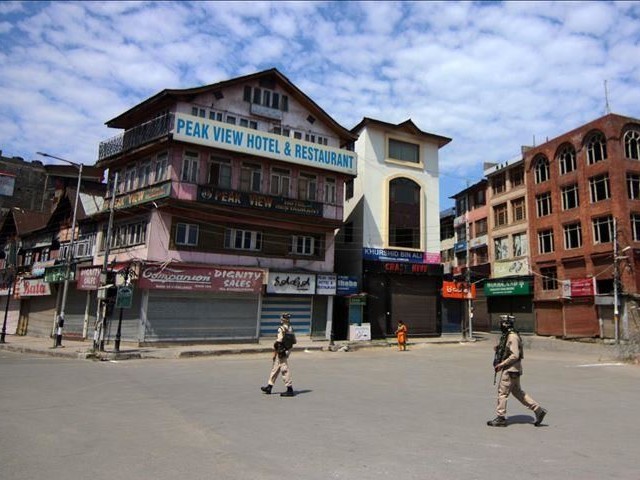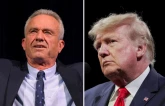
The future of Indian Illegally Occupied Jammu and Kashmir (IIOJK) cannot be determined by New Delhi unilaterally.
This was stated by lawmakers from the European Union (EU) and the UK at a webinar hosted by the Jinnah Institute on ‘The Future of Kashmir: A Test for Global Multilateralism and Regional Peace’. They reaffirmed the right of the Kashmiri people as the principal stakeholders of the 73-year-long conflict.
Noting how the situation has evolved in the disputed Himalayan territory with implications for conflict escalation in the region, Pakistan Peoples Party (PPP) Senator Sherry Rehman said that Kashmir is the oldest issue on United Nation’s (UN) agenda, and it must not be forgotten, nor treated as an inconvenient regional issue that can be airbrushed by the international community.
"The fact that India refuses to talk about it with Pakistan, and to allow the Kashmiri people to decide their future is in itself a grave repudiation of fundamental rights and puts at risk, not just the Kashmiri people who have been subject to a cascade of draconian laws in IIOJK that strip them of any justice or rights, but also puts the future of South Asia in jeopardy," the panel’s chair said.
Azad Jammu and Kashmir (AJK) President Sardar Masood Khan observed that the future of the Kashmiri people was bleak unless the international community does not intervene. He urged the parliaments of the UK and EU to focus on the situation in IIOJK and do something before it was too late.
To resolve the issue, he proposed an international rights movement while reaching out to Indian civil society, politicians and international partners who recognise and oppose the BJP’s rights violations in Kashmir.
British MP James Daly recounted his visit to AJK in February along with fellow lawmakers, and how they were given complete access to interact with citizens at all levels to ascertain the situation on the ground.
“We were treated with complete openness…unfortunately, our group was not let into India, and we were not able to speak with the Indian government in a free and open manner,” he stated.
Veteran Kashmiri journalist Iftikhar Gilani saw that Kashmiri history, culture and language is being erased by BJP’s Hindutva onslaught against the Muslim majority state.
Indian attempts to paint the indigenous freedom movement with the broad brush of militancy and terming it foreign-funded was a clear deflection of rights violations, he emphasized, adding that Kashmir was a tinderbox that could “go off at any time”, he said. Former BJP politician Sudheendra Kulkarni believed that the acrimonious relationship between Pakistan and India was a remnant of the Partition and its aftermath. The abrogation of Article 370 was unconstitutional and unjust and had transformed the Kashmir issue to one now involving three states; Pakistan, China and India.
“The abrogation is a wrong, and one that has to be rectified. Interdependence in the region would help find a solution,” he stated.
German MP Michael Gahler stated that India and Pakistan’s acrimonious past cannot be changed, but to move ahead and to formulate new ways of resolving the challenge, there is need for neutral observers to collect information and report to the international community.
Published in The Express Tribune, September 14th, 2020.

1731570357-0/elon-musk-(1)1731570357-0-405x300.webp)

1731673687-0/BeFunky-collage-(63)1731673687-0-165x106.webp)






1731666526-0/Express-Tribune-(9)1731666526-0-270x192.webp)
1731668520-0/Express-Tribune-(11)1731668520-0-270x192.webp)






COMMENTS
Comments are moderated and generally will be posted if they are on-topic and not abusive.
For more information, please see our Comments FAQ